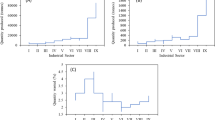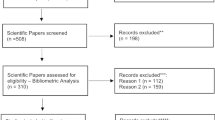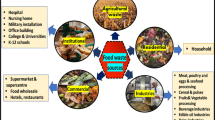Abstract
It is no secret that there have been radical changes in the way we produce and consume food ever since the introduction of industrial methods of production to food. Such changes have raised several ethical concerns about loss of biodiversity, ethical treatment of animals, nutritional quality of industrial food, safety of genetically modified food, and adequate working conditions of people in agricultural sector among many others. Food ethics has recently started to respond to some such concerns. However, a food ethics that is based on individualistic theories and principles such as well-being, and liberty is part of the problem. The shortcoming is that it identifies individuals only in an isolated way without considering their social contexts and relationships. We are tied by our location, cultural values, race, gender, familial traditions, societal norms, and human institutions, along with relationships to environments and animals. In order to highlight the narrow focus of individualistic principles in addressing food debates I have utilized an ethical tool called the ‘ethical matrix’ that analysis food issues with respect to the principles of well-being, autonomy and justice. In this paper, I present the case for a communitarian model of food ethics that can help address the ethical concerns raised by industrial food production and also suggest a possible way to assist in making ethical decisions.
Similar content being viewed by others
Notes
A product of the first half of the twentieth century is the concept of ‘nutrition’. Food was reduced to the nutrients it was made up of and health was translated into dietary advice based on the consumption of specific quantities of different nutrients. There are important concerns related to this discovery, such as, an oversimplification of the connection between nutrients and bodily health and adoption of a rather reductive approach in understanding food Scrinis (2015).
Commoditization transforms food into a commodity in the market that can be bought or sold through a monetary exchange. To put it simply, food commoditization is a process by which food gets treated as a commodity in the market and this aspect is given preference over other aspects like ‘sustenance, human rights, and social relations’. See also Baofu (2012).
While scarcity in food production is no longer a primary issue in most industrialized nations food security could still be an issue in industrialized societies. I am not motivated to equate sufficiency in food production with being food secure for a nation or a society as I feel there are other contributing factors like distributional and institutional injustices along with income insecurities that at times make people lack access to food. M.S. Swaminathan(2001) makes an important point regarding this that people need to have jobs or some other source of livelihood in order to ensure they can buy food. There are problems like scarcity in food production, faulty distribution systems, nutritionally deficient food, and affordability of healthy food among many other problems that can be understood as being food insecure.
Access to culturally appropriate food is also an important aspect of food security; food security endowed with cultural implications will go beyond concerns like scarcity and distribution. Some of these concerns relating to food security gain more relevance in industrialized societies. See also Irrera (2016)
‘GM’ is used to refer to the technology of modifying genes of plants and organisms by scientists. This has been possible due to recombinant DNA technique (1973); this has made it possible to transfer genes from one organism to another organism or mute some existing gene in an organism (Singer and Mason 2006).
By arguing this way I am in no way challenging the claim ‘individuals have values’ but it becomes problematic if only individuals are considered to have value.
The table is an adaptation of Ben Mepham’s ethical matrix applied to GM. (Mepham 1996, p.106)
I understand that this criticism doesn’t apply to the ethical matrix given by Kaiser et al. (2007) since the matrix there is not fixed and predetermined.
Most of the reasons offered by Virginia Held are made in order to make a case for care ethics. But for my purpose I have borrowed two of them.
I understand that the communitarian approach can prove to be promising in making ethical decisions with respect to other types of applied ethics (business ethics, medical ethics, environmental ethics, etc.). But I will not be dwelling on this in my paper. The focus of this paper will be on the relevance of communitarian values in food ethics.
In this paper, Werkheiser and Noll understand communitarianism in terms of activism as a community focused sub-movement that suggests that people are member of communities, where food is co-constituted and locality becomes an important factor in moving towards more just communities.
Food Ethics Council UK is a charity organization that is aimed at creating a food system that is fair and that is focused on the health of people, animals and the environment. It is an organization that understands that decisions about food are made without enough ethical deliberation and consideration and want to put ethics at the center of making decisions about food. Food Ethics Council utilizes the ethical matrix in order to analyze the complexity of ethical issues relating to food without restricting decision making to single ethical theory. The criticisms of the ethical matrix discussed in the previous section also apply to its application by the Food Ethics Council.
Local Food movements recognize people as members of a community and locality to be an important aspect of safeguarding relationships and furthering just and fair communities. See Werkheiser and Noll (2014)
The concept of food sovereignty was coined in 1996 by La Via Campesina at the World Food Summit.
References
Allan, K. 2007. The social lens: An invitation to social and sociological theory. Thousand Oaks: Pine Forge Press.
Allhoff, F., and D. Monroe. 2007. Setting the table: An introduction to food and philosophy. In Food and philosophy, ed. F. Allhoff and D. Monroe, 1–10. USA: Blackwell Publishing Ltd.
Armesto, F. 2002. Food: A history. London: Pan Books.
Avinera, S., and A. de Shalit. 1992. Introduction. In Communitarianism and individualism, ed. S. Avinera and A. de - Shalit, 1–11. Oxford: Oxford University Press.
Baofu, P. 2012. The future of post-human culinary art: Towards a new theory of ingredients and techniques. United Kingdom: Cambridge Scholars.
Burkhardt, J. 2012. The ethics of food safety in the twenty-first century. In The philosophy of food, ed. D. Kaplan, 140–160. Berkley: University of California Press.
Etzioni, A. 2000. The third way to a good society. London: Demos.
Etzioni, A. 2003. Communitarianism. In Encyclopedia of community: From the village to the virtual world, ed. K. Christensen and D. Levinson, 224–228. United Kingdom: Sage Publications.
Etzioni, A. 2015. Common good. In The encyclopedia of political thought, ed. M. Gibbons, 1–7. UK: John Wiley & Sons, Ltd.
Food Citizenship. 2017. How thinking of ourselves differently can change the future of our food system. https://foodcitizenship.info/about/ Accessed 18 July 2020.
Food Ethics Council. 2000. Who we are. https://www.foodethicscouncil.org/who-we-are/ Accessed 18 July 2020.
Forsberg, E.M., and K. Miller. 2009. Applying the ethical matrix method: Learning from experience. In Ethical futures: Bioscience and food horizons, ed. K. Miller, P.H. West, and B. Nerlich, 370–375. The Netherlands: Wageningen Academic Publishers.
Halford, N. 2012. Genetically modified crops. London: Imperial College Press.
Held, V. 2006. The ethics of care: Personal, political and global. New York: Oxford University Press.
Irrera, I. 2017. Food security at risk: a matter of dignity and self-respect. In The Routledge handbook of food ethics, ed. M. C. Rawlinson and C. Ward, 103-112. New York City: Routledge.
Kaiser, M., K. Millar, E. Thorstensen, and S. Tomkins. 2007. Developing the ethical matrix as a decision support framework: GM fish as a case study. Journal of Agricultural and Environmental Ethics 20: 65–80.
Kaplan, D. 2012. Introduction. In Food ethics, ed. P. Pojman, 1–7. Boston: Wadswarth.
King, R. 2007. Eating well: Thinking ethically about food. In Food and philosophy, ed. F. Allhoff and D. Monroe, 177–191. USA: Blackwell Publishing Ltd.
Kirschenmann, F.L. 2010. Cultivating an ecological conscience: Essays from a farmer philosopher. Kentucky: University Press of Kentucky.
Korthals, M. 2004. Before dinner: Philosophy and ethics of food. Netherlands: Springer.
Lang, T., and M. Heasman. 2004. Food wars. UK: Earthscan.
Low, N., and B. Gleeson. 1998. Justice, society and nature. London: Routledge.
Mepham, B. 1996. Ethical analysis of food biotechnologies: An evaluative framework. In Food ethics, ed. B. Mepham, 101–119. London: Routledge.
Moula, P., and P. Sandin. 2017. Ethical tools. In The ethics of technology: Methods and approaches, ed. S.O. Hansson, 115–128. London: Rowman and Littlefield.
National Family Farm Coalition. 1986. What is food sovereignty. https://nffc.net/what-we-do/food-sovereignty/ Accessed 27 July 2020.
Navari, C. 2003. When agents cannot act: International institutions as ‘moral patients’. In Can institutions have responsibilities, ed. T. Erskine, 100–116. London: Palgrave Macmillan.
Piatti, C. 2015. Slow Food presidia. In Food utopias: Reimagining citizenship, ethics and community, ed. P. Stock, M. Carolan, and C. Rosin, 88–106. New York: Routledge.
Pollan, M. 2006. The omnivore’s dilemma: A natural history of four meals. USA: The Penguin Press.
Reiner, J. Toby 2020. Michael Walzer. John Wiley & Sons.
Sandel, M. 2010. What’s the right thing to do. New York: Macmillan.
Schanbacher, William D 2017. Introduction to food justice in a global context. In Food justice in US and global contexts, ed. I. Werkheiser and Z. Piso, 7–12. Springer.
Scrinis, G. 2015. Nutritionism: The science and politics of dietary advice. United States: Columbia University Press.
Singer, P., and J. Mason. 2006. The ethics of what we eat. USA: Rodale Inc..
Swaminathan, M.S. 2001. Food insecurity atlas of rural India. India: M.S. Swaminathan Research Foundation.
Szymanski, I.F. 2017. What is food? Networks, not commodities. In The Routledge handbook of food ethics, ed. M.C. Rawlinson and C. Ward, 7–15. New York City: Routledge.
Thompson, P.B. 2015. From field to fork: Food ethics for everyone. New York: Oxford University Press.
Werkheiser, I., and S. Noll. 2014. From food justice to a tool of the status quo: Three sub-movements within local food. Journal of Agricultural and Environmental Ethics 27: 201–210. https://doi.org/10.1007/s10806-013-9459-6.
Whyte, K.P. 2017. Indigenous food sovereignty, renewal and US settler colonialism. In The Routledge handbook of food ethics, ed. M.C. Rawlinson and C. Ward, 354–365. New York City: Routledge.
Whyte, K.P. 2018. Food sovereignty, justice and indigenous people: An essay on settler colonialism and collective continuance. In The Oxford handbook of food ethics, ed. A. Barnhill, M. Budolfson, and T. Doggett, 345–366. USA: Oxford University Press.
Author information
Authors and Affiliations
Corresponding author
Additional information
Publisher’s Note
Springer Nature remains neutral with regard to jurisdictional claims in published maps and institutional affiliations.
Rights and permissions
About this article
Cite this article
Sharma, S. Eating Ethically: Towards a Communitarian Food Model. Food ethics 5, 18 (2020). https://doi.org/10.1007/s41055-020-00078-1
Accepted:
Published:
DOI: https://doi.org/10.1007/s41055-020-00078-1




